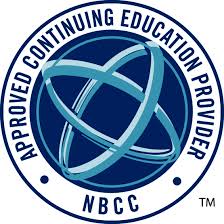April 5, 2024
8:30am – 4:00pm Pacific Time
(11:30am – 7:00pm Eastern Time)

Presented via Zoom Video Communications
PRESENTED BY
Andrew White, PhD, ABPP![]() DBT-Linehan Board of Certification Certified Clinician™
DBT-Linehan Board of Certification Certified Clinician™
Registration is closed. Email or Call the Training Team if you’d still like to join!
training@pdbti.org (503)290-3295
COURSE DESCRIPTION
Suicide remains the 10th leading cause of death for all individuals in the United States and is the second leading cause of death for individuals between the ages of 35 and 54 (CDC, 2021). Evidence based practice around suicide prevention and treatment can be difficult to understand and implement, causing tension between ethical standards of avoiding harm and practicing within areas of competency with day-to-day clinical obligations. This training seeks to find balance between resolving ethical tensions and increasing competencies regarding the treatment of suicidal patients. Participants will review up-to-date information on best practices for suicidal patients, practice interventions, and use working with suicidal clients as a lens from which discuss ethical codes related to practice. This training will give participants a total of 6 CE hours. The content qualifies for 4 CE hours related to ethics and 2 CE hours related to suicide.
LEARNING OBJECTIVES
Upon completion of this one-day training, participants will be able to:
- Identify general long term risk and protective factors for suicide
- Have a model for conceptualizing populations at risk for suicide
- Identify the imminent risk factors for suicide
- Understand current theories against hospitalization of suicidal individuals
- Understand what a validated risk management protocol is
- Know where to access resources regarding working with suicidal patients
- Understand lethal means restriction
PREREQUISITES
There are no prerequisites for this course.
WHO SHOULD ATTEND?
This course is designed for mental health professionals with or without familiarity with DBT.
DELIVERY METHOD
We will apply highly engaging instructional strategies, along with audience participation, to bring the teaching to life.
CONTINUING EDUCATION HOURS
 Participants who complete the full training will earn 6 CE hours.
Participants who complete the full training will earn 6 CE hours.
Portland DBT Institute has been approved by NBCC as an Approved Continuing Education Provider, ACEP No. 6326.
Programs that do not qualify for NBCC credit are clearly identified. Portland DBT Institute is solely is responsible for all aspects of the programs.
PRICING
| Individual Registration Fee $249.00 |
Group Registration Fee for 3 or more $225.00 |
Student Registration Fee $215.00 |
Private Training Requests
Portland DBT Institute training is available to schedule as a private training for your group. PDBTI’s training team travels locally, nationally, and internationally, to provide evidence based, adherent DBT training. Please fill out our Training Request Form and a training coordinator will contact you to see how we can work together to exceed your organization’s training goals.
CANCELLATIONS AND REFUNDS
A $60.00 handling fee will be deducted upon cancellation. Refund requests by fax or email must be received two weeks before the start date. In addition, the fees are non-transferrable.
PDBTI reserves the right to cancel any program due to under-enrollment, or any course due to work stoppages, instructor illness or inclement weather. If a course is cancelled, PDBTI is responsible for refunding only the course fee.
